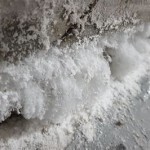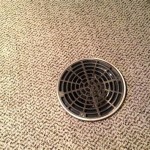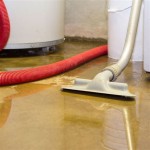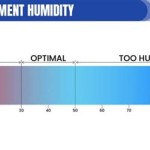Water Leaking Into Basement After Heavy Rain: DIY Solutions
Experiencing water leakage in your basement after heavy rainfall can be a distressing and inconvenient problem. Water seeping into your basement can cause damage to your belongings, flooring, and even structural components of your home. Fortunately, there are several DIY solutions you can implement to address this issue and prevent further damage.
1. Inspect Your Gutters and Downspouts
Gutters and downspouts play a crucial role in directing rainwater away from your home's foundation and preventing water leakage into your basement. Start by checking if your gutters are clogged with leaves, debris, or other materials. Clogged gutters can overflow and cause water to seep into your basement through small cracks or openings in the foundation walls.
Next, inspect your downspouts to ensure they are securely connected to the gutters and extend far enough away from your home's exterior walls. Downspouts that are disconnected or too short will allow water to splash near your foundation, saturating the soil and increasing the chances of water leaking into your basement.
2. Seal Cracks and Holes in Foundation Walls
Cracks or holes in your foundation walls can provide easy entry points for water during heavy rainfall. Carefully inspect your basement walls for any visible cracks or openings. You can use a flashlight to detect cracks that may not be immediately noticeable.
To seal cracks or holes, use a hydraulic cement or epoxy repair kit specifically designed for repairing concrete cracks. Follow the manufacturer's instructions for proper application. Ensure the crack or hole is clean and dry before applying the sealant.
3. Improve Drainage Around Your Home
Poor drainage around your home can lead to water accumulation near your foundation, increasing the likelihood of water leaking into your basement. Inspect the grading of your property and make sure the soil slopes away from your home's exterior walls.
If your soil is not sloping appropriately, consider installing a French drain or other drainage system to divert water away from your foundation. You can also create a rain garden or plant trees and shrubs with extensive root systems to help absorb excess water.
4. Install a Sump Pump
If water continues to leak into your basement despite implementing the above measures, installing a sump pump may be necessary. A sump pump is a device that automatically pumps out water that accumulates in a designated area of your basement.
Sump pumps are available in various sizes and capacities. Choose a pump with an appropriate pumping capacity for the size of your basement. Professional installation is recommended to ensure the sump pump is correctly installed and functioning properly.
5. Use Dehumidifiers
While dehumidifiers do not directly address the source of water leakage, they can help control excess moisture in your basement, reducing the potential for mold and mildew growth. Place a dehumidifier in your basement and set it to maintain a relative humidity level of around 50% to 60%.
By implementing these DIY solutions, you can effectively address water leakage into your basement after heavy rain and prevent further damage. However, if the problem persists or you encounter significant water damage, it is recommended to consult a professional contractor for further assistance.

Why Your Basement Leaks In Heavy Rain

Help My Basement Leaks When It Rains News And Events For Systems Inc

7 Ways To Stop Rain Leaking Into Your Basement Baker S Waterproofing

How To Fix Water Leaking Into Basement After Heavy Rain Gj Macrae

The Best Methods For Basement Leak Repair Acculevel

Water Leaking Into Basement After Heavy Rain How To Stop It

12 Tips For Fixing A Leaky Basement Family Handyman

12 Tips For Fixing A Leaky Basement Family Handyman

Solved Here S What To Do About Water Leaking Into The Basement After Heavy Rain Bob Vila

Why Your Basement Leaks In Heavy Rain








